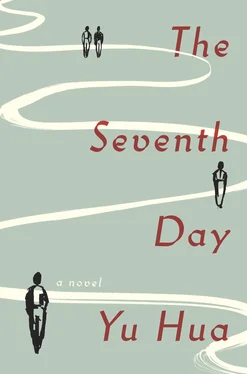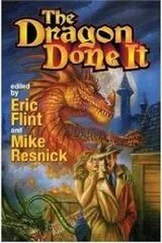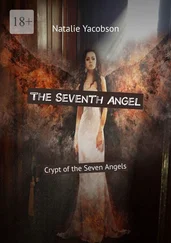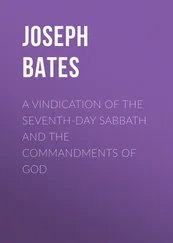“Is the mayor a VIP?”
“Yes.”
“Does he need both ovens?”
“He’ll be using the imported one.”
“Well, why are you holding back on the domestic one, then?”
“I’m not clear about that — all I know is that both ovens are currently out of service.”
A VIP in the armchair zone waved a hand to beckon the usher, who walked briskly over to attend to his inquiry.
“How long is it till the farewell to the mayor?” the VIP asked.
“I’m not quite sure.” The usher paused. “It’ll be a little while yet, I imagine. Please just wait patiently.”
A crematee who had just arrived provided an update as he made his way to his seat. “If you add up all the city officials, big and small, as well as those from adjacent districts and counties, that must amount to over a thousand people, and every one of them needs to say goodbye to him, and they can’t walk fast — they need to walk past slowly, and some will want to weep as well.”
“What’s so special about a mayor?” the VIP grumbled.
The new arrival had not finished. “Starting this morning, all the main roads in the city were sealed off and the vehicle carrying the mayor’s remains moved along at walking pace, with several hundred cars following to escort it. What should have taken just thirty minutes required a good hour and a half. The main roads are still sealed off and regular traffic won’t resume until after the mayor’s ashes have been returned home.”
If the main roads are sealed off, the other streets are bound to be crammed with traffic. I remembered the sound of collisions when I was walking in the fog that morning and the scene of havoc that I saw later. Then I was reminded of the news of the mayor’s sudden death that had circulated in all the newspapers and on television channels a couple of weeks earlier. The official explanation was that the mayor had suffered a heart attack as a result of overwork; the popular version making the rounds on the Internet was that the mayor had suffered a heart attack in the executive suite of a five-star hotel just as he reached orgasm with a young model. The model was so shocked that she ran into the corridor screaming and sobbing, forgetting she was naked below the waist.
Then both sets of conversations turned to the topic of burial plots. Those in the plastic seats had plots measuring one square yard, whereas the burial grounds for the VIPs were all at least six acres. Perhaps because the VIPs had heard what the plastic-seaters were saying, one of them asked loudly, “How can one possibly make do with one square yard?”
A hush fell over the plastic seats as people began to listen to the luxurious appointments of those in the armchairs. Five out of the six burial plots were established on mountain peaks, facing the sea, encircled by clouds, the most uplifting and awe-inspiring ocean-view grave sites imaginable. The sixth was in a dale where trees grew thickly, streams gurgled, and birds sang, and where a natural rock that had been rooted there for hundreds of thousands of years served as headstone. These days everyone wants to eat organic foodstuffs, the owner said, but his was an organic headstone. Of the other five burial plots, two had monuments that were miniature versions of real buildings — one a Chinese-style courtyard dwelling, the other a Western-style villa — while two others boasted formal grave steles: they didn’t go in for all that showy stuff, their owners said. The last one took everybody by surprise, for the stele was a full-scale replica of the Monument to the People’s Heroes in Tiananmen Square, the only difference being that the inscription in Mao Zedong’s calligraphy on the monument, “In eternal tribute to the people’s heroes,” had been changed to “In eternal tribute to Comrade Li Feng”—also in Mao’s calligraphy, since the owner’s family had hunted down the characters for “Comrade Li Feng” in Mao’s manuscripts, enlarged them, and inscribed them on the stele.
“Comrade Li Feng — that’s me,” the owner added.
“It all sounds a bit risky,” another VIP said. “One of these days the government might insist on demolishing a memorial like that.”
“I’ve already paid my hush money,” he responded confidently. “I can’t afford to let the story get out, so my family has already deployed a dozen people to keep reporters from covering it. Twelve is exactly the strength of an army squad, and with a team of guards protecting me I can rest without any worries.”
At this point the two rows of ceiling lights in the waiting room came on, and the twilight hour suddenly was transformed into noonday. The usher quickly marched toward the front door.
The mayor entered, dressed in a black suit, white shirt, and black tie. He walked in soberly, sporting heavy makeup on his face, a pair of bushy black eyebrows, and bright lipstick on his lips. The usher greeted him, leading him in solicitously. “Mayor, please make yourself comfortable in the VIP luxury suite.”
The mayor, nodding, followed him in. Two huge doors in the waiting room slowly swung open, only to close again slowly once he had entered.
The VIPs in the armchairs had all gone quiet. The VIP luxury suite had reduced the armchair zone to silence; wealth conceded its inferiority to power.
Among the plastic chairs, conversation continued to rise and fall, with burial remaining the topic of interest. Everyone bemoaned the fact that graves were now even more expensive than houses. In graveyards that were terribly crowded, despite their remote location, a square-yard plot still cost you thirty thousand yuan — and with a guaranteed tenure of only twenty-five years. Although houses were expensive, at least you could be sure of keeping them for seventy years. Some crematees were highly indignant, while others were racked with anxiety. “What will happen after twenty-five years?” they worried. By that time the price of a grave plot would most likely have reached astronomical levels, and if their family couldn’t afford to pay out for a renewal of the lease, their ashes would simply end up as fertilizer.
“Dying is such an expensive business these days!” one of the crematees in the front row grumbled.
“Best not to think about the future,” the old gentleman next to me calmly advised.
The old man told me that seven years earlier he had purchased a square-yard plot for three thousand yuan, and now it was worth thirty thousand. He rejoiced in his foresight at the time — if he wanted to buy it now, he would never be able to afford it.
“In seven years the price has risen tenfold,” he sighed.
Reservation numbers began to be called. The mayor had now been cremated, and his urn, over which the Communist Party flag had been laid, was deposited on a black hearse, which then slowly moved away, followed by several hundred sedans. Funereal music began to sound from the sealed-off roads. I realized now that whereas ordinary reservation numbers began with an A, VIP reservation numbers began with a V. I wasn’t sure what letter reservation numbers of luxury VIPs like the mayor started with — perhaps they didn’t require any number whatsoever.
The six VIPs with the V numbers went in. Many A numbers were called, but just as the usher in blue had said, there were a lot of no-shows — occa  sionally there would be ten or more no-shows one after another. I noticed now that the usher was standing in the passageway next to me, and when I raised my head to look at him, his weary voice again sounded. “The no-shows don’t have graves.”
sionally there would be ten or more no-shows one after another. I noticed now that the usher was standing in the passageway next to me, and when I raised my head to look at him, his weary voice again sounded. “The no-shows don’t have graves.”
I had neither urn nor grave. Why did I come here? I wondered.
I heard the number A64—my number — called, but I stayed put in my chair. A64 was called three times, and then they moved on to A65. The woman next to me stood up. She was wearing a traditional shroud — in the Qing dynasty style, it looked like — and as she walked, her wide sleeves swung back and forth.
Читать дальше

 sionally there would be ten or more no-shows one after another. I noticed now that the usher was standing in the passageway next to me, and when I raised my head to look at him, his weary voice again sounded. “The no-shows don’t have graves.”
sionally there would be ten or more no-shows one after another. I noticed now that the usher was standing in the passageway next to me, and when I raised my head to look at him, his weary voice again sounded. “The no-shows don’t have graves.”









